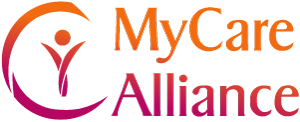The situation around the novel coronavirus (COVID-19) is changing rapidly. While it’s still true that the best way to stay safe is to limit your interactions with other people as much as possible and take precautions to prevent getting COVID-19 when you do interact with others, there are a few important things to remember.
Do not neglect your existing health issues
Many older adults have one or more chronic conditions, such as diabetes, heart disease or hypertension. These chronic conditions require routine monitoring and failure to do so could report in additional health complications or death. Many physicians are now offering extended telehealth services to help in managing chronic conditions without exposing patients to unnecessary risk. Do not delay emergency care, especially if you or your loved one are experiencing shortness of breath, chest pain, or discomfort in your arms, back, or neck. These could be symptoms of a heart attack or stroke and acting quickly may be a matter of life or death.
If you must go out practice physical distancing and stay at least 6 feet apart.
The Centers for Disease Control (CDC) still suggests you wear a cloth face covering or mask when you are around people who don’t live in your household. It’s still best to limit your physical interactions with other people as much as possible. If you decide to go out or visit with family or friends, the safest approach is staying outdoors for optimal ventilation and keeping 6 feet apart. The closer you are to other people who may be infected, the greater your risk of getting sick.
Use common-sense.. do not skip the basics.
- Manage stress, get enough sleep, and wash your hands often (and for at least 20 seconds) with soap and water. If soap and water is not available, use hand sanitizer that contains at least 60% alcohol.
- Stock up on healthful foods, have 30 days of medication on hand, and try to stay physically and socially active. . Regular physical activity benefits your mind and body!
- Stock up on cleaning supplies. You should clean frequently-touched surfaces in your home such as light switches or doorknobs at least once per day.
Seek help if you need it
If you are at high-risk of complications from COVID-19 or are you’re having trouble paying your bills, you may want to check out the National Council on Aging benefits tool to see if you qualify for the hundreds of programs that help older adults pay for food, housing, utilities, medication, and more. Stay connected to family, friends and neighbors with phone calls, letters, e-mail, and through social media and consider reaching out when you need help.

